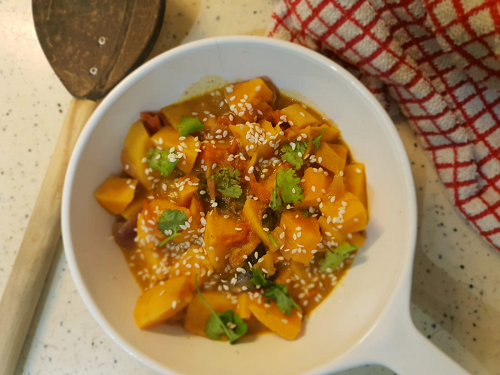The truth about salt
Its Salt Awareness Week and we want to let you know the truth about salt if we consume it in excess.
Salt is a mineral also known as sodium chloride the main ingredient in table salt. Sodium is important for nerve and muscle function and is involved in the regulation of fluids in the body.
Therefore we do need some salt in our body however as a nation we are consuming large amounts of salt. Consuming too much salt can increase our blood pressure putting us at risk of heart disease and stroke.
Salt is added to common food products and we may not realise we are consuming too much. Salt is added to tinned foods such as baked beans, breakfast cereals, crisps, chutneys, sauces, processed foods, nuts, bread, etc.
Salt statistics
Adults should be consuming no more than 6g of salt per day (1tsp, 2.4g sodium)
‘75% of the salt we eat comes from salt added to food by the food industry’ (Actiononsalt)
A good way to be mindful of reducing our salt is looking at food labels on food products. We want to aim for green/amber
| Low (green) | Medium (amber) | High (red) | |
| Salt | 0g – 0.3g | 0.3g – 1.5g | More than 1.5g |
| Sodium | 0g -0.1g | 0.1g – 0.6g | More than 0.6g |
Tips on how to reduce salt!
- Try not to have salt on the table
- Opt for plain nuts instead of dry/roasted/salted nuts
- Swap crisps with crackers/fruit and vegetables as a snack
- Try herbs, garlic, ginger, onions, chili, lemon, natural yoghurt and spices to flavour/season/marinate foods
- Watch out for seasoning powders, cooking sauces and chinese based sauces such as soya sauce which can be high in salt. Opt for reduced salt products
- Consume smaller amounts of bacon, cheese, pickles, smoked meat/fish, stock cubes, ready meals and processed foods as they contain high amounts of salt
- Sandwich fillings can contain a lot of salt – opt for plainer versions
- Tinned pulses and vegetables contain added salt, opt for non salt added tinned versions
- Make your own pasta sauce using chopped tomatoes
- Roasting and grilling foods brings out flavour therefore no need to add salt
- Include plenty of fruit and vegetables in your diet
‘Eat high salt foods in smaller amounts, aim to eat foods that are green and amber, be mindful of your salt intake and think about ways you can slowly reduce your salt intake’!
The truth about salt – Sweet potato curry recipe!
Here is a recipe that doesn’t require any salt: sweet potatoes are a starchy sweet root vegetable rich in flavour – a good source of fibre, high in beta carotene and when eaten turns into Vitamin A. 80g of sweet potato also counts towards one of your 5aday!
Ingredients
- 1 large sweet potato peeled and quartered
- 1/2 a green chili chopped
- 1 onion chopped
- 1-2 garlic cloves chopped
- 1 large tomato chopped
- ¼ piece of ginger chopped
- Handful of coriander leaves
- Handful of sesame seeds
- 1 tsp madras curry powder
- ½ tsp cumin seeds
- ½ tsp fennel seed
- 1 tsp garam masala
- ¼ tsp turmeric
- ¼ cup of low fat coconut milk
- 1 tbs olive oil
Method
- In a pan, add the oil, fennel and cumin seeds, onion, garlic and ginger. Cook until softened and browned on a medium heat.
- Add the sweet potato followed by chopped tomato and mix well.
- Add the coconut milk, garam masala, madras curry powder and turmeric then season with black pepper and mix well.
- Allow the curry to simmer until the sweet potato is tender and the curry has thickened. Add water if required.
- Garnish with coriander and sesame seeds.
Useful website links
Blog written by
Gopika Papiah (nutritionist)
Farhanda Shah (dietitian)
View posts by category:
